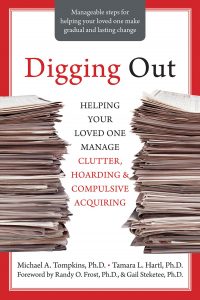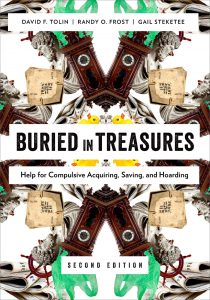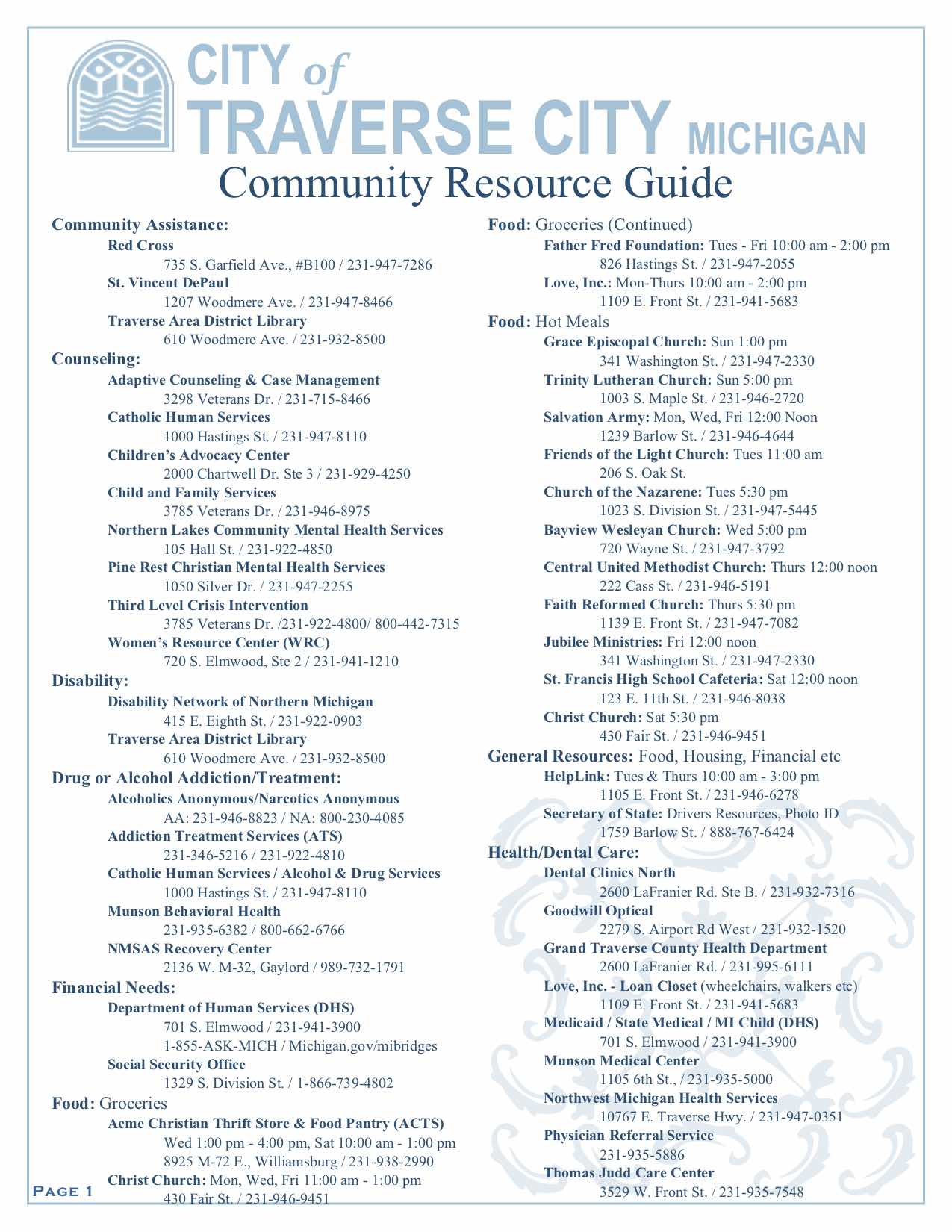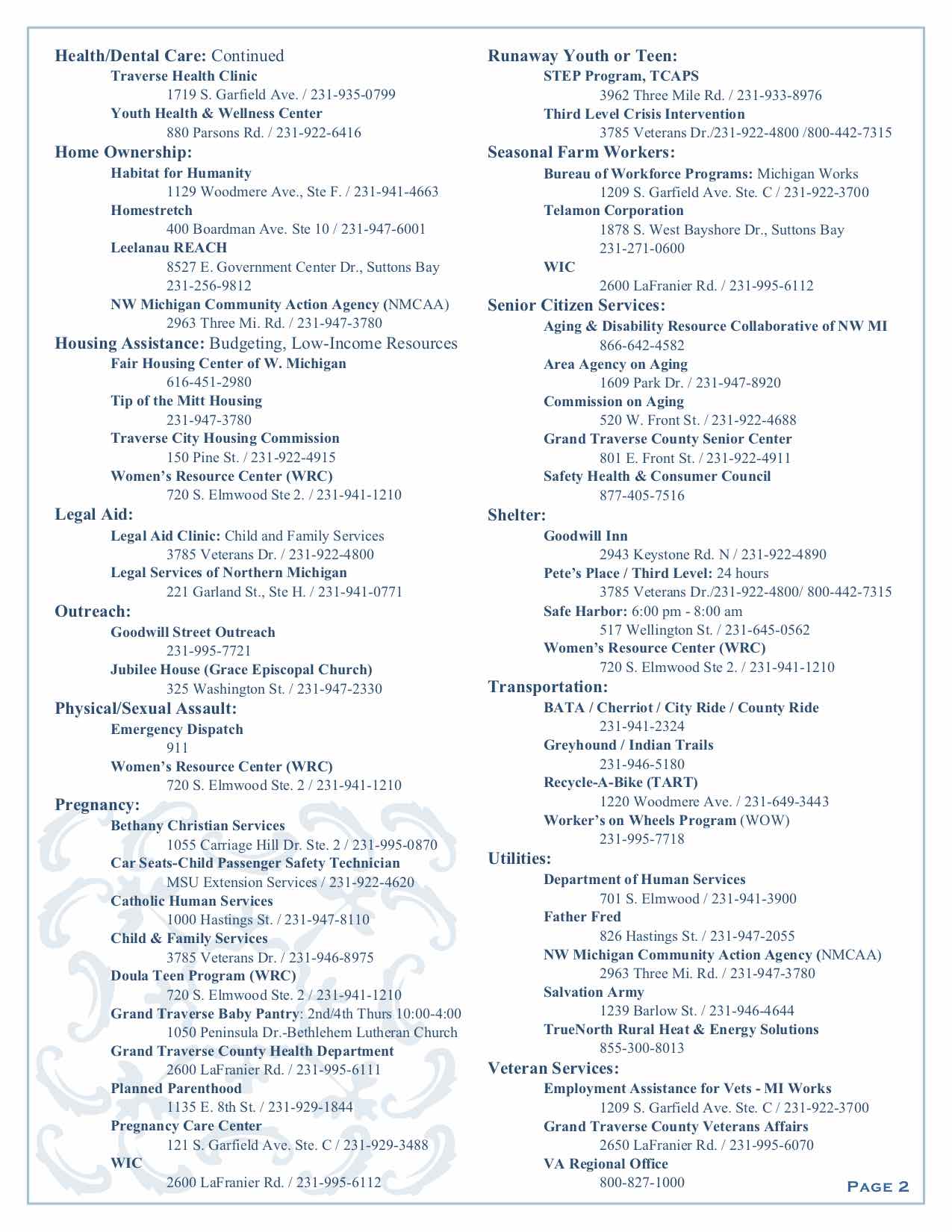Traverse Bay Area Task Force on Hoarding


About Us
Seeing a need and helping to fill it
The Traverse Bay Area Task Force on Hoarding is a volunteer, advisory group that meets quarterly to review existing hoarding situations that affect the health and safety of individuals in the Grand Traverse County and surrounding areas. The Task Force itself does not provide direct services but is comprised of representatives of agencies and programs that often are able to help. Organizations that encounter hoarding situations are encouraged to bring challenging cases to the monthly task force meeting for review (confidentiality rules apply) with the goal of identifying, developing plans, and locating resources that may help bring about a positive outcome for all involved.
Resources
Connect with community assistance
Definition:
The acquisition of and/or failure to discard a large number of possessions that appear to be useless or of limited value. Living spaces that can’t be used for the intended purpose due to clutter. Significant distress or impairment in functioning caused by the hoarding
Possible Signs of Hoarding Behavior
Blocked entries and exits due to the accumulation of large number of belongings (doors/windows)
Narrow or limited pathways in the home due to accumulation of materials
Large piles of combustible materials such as newspapers, magazines, used food containers and rubbish
Excessive collection and storage of items in the residence, yard, vehicle that interferes with the intended use of that space
Foul odors emanating from the home
Excessive amount of companion animals
Vermin and/or insect infestations
Spoiled and/or rotting food
Accumulated human and/or animal waste
Non-working or inaccessible utilities, such as heat, running water, sewer, refrigeration
Please you the following scale when answering items below:
– 0 – No Problem
– 2 – Mild Problem, occasionally (less than weekly) acquires items not needed, or acquires a few unneeded items
– 4 – Moderate, regularly (once or twice weekly) acquires items not needed,or acquires some unneeded items
– 6 – Severe, frequently (several times per week) acquires items not needed or acquires many unneeded items
– 8 – Extreme, very often (daily) acquires items not needed, or acquires large numbers of unneeded items
A score of 4 or greater on any of the above questions may indicate safety hazards in your home.
The excessive accumulation of materials in your home may pose increased fire risks to you and your neighbors, increase the risk of falls and falling items, and cause potential delays in receiving vital help during an emergency. For more information, help, or a confidential visit or consultation, contact the Traverse Bay Area Hoarding Task Force by emailing traversebayhoarding@gmail.com.
Selling Items
- Direct buy or consignment resale stores Used book stores, used music stores.
- Direct online sales on Craigslist, Ebay, Offerup, etc. Community or church yard sales
- Auction houses Flea market booth
- Antique stores
Donating Items
- Thrift stores Homeless shelters
- Drug recovery & rehab centers Family emergency services centers
- Women’s shelters Job placement programs
- Day care centers / low income children’s centers Orphanages
- Programs for people with disabilities Senior centers; nursing homes
- Food pantries Animal shelters
- Libraries Other non-profit organizations
Recycling & Disposal
- City large item pickup or dumpster drop off Recycling centers, drop off locations
- Electronic waste (e-waste) centers Police dept, Sheriff’s dept.
- Shredding services Retail stores – Electronic, home improvement, & office supply stores
Personal Support
- Social workers Home health care services
- Meals on Wheels Volunteers for regular visits, transportation
- Other transportation services (City, non-profits, rideshare services)
- National Association of Professional Organizers: www.napo.net
- Institute for Challenging Disorganization: www.challengingdisorganization.org
Social & Artistic Activities
- Senior centers Library programs & events
- Community support – church members, neighbors,
- friends, family, etc.
- College & university events (free concerts, lectures,
- art exhibits, etc.)
- Social groups (Meetup.com, etc.) Volunteer work (Search at United Way Website)
- Bookstore events, book clubs Museums and galleries, events & exhibits
- Botanical gardens & arboretums Historic clubs and preservation societies
Local & State Partners
- Local and state adult protective services, child
- protective services, elder abuse agencies
- Animal welfare/rescue groups
- Senior centers or senior assistance programs – may
- have bill-paying service and other services.
- Mental health clinics – find local counseling centers
- that work on a sliding scale.
- Organizations or local / state agencies providing assistance with finances
Donation Locations
- Art & Craft Supplies (incl. sketch pads, journals, coloring books, misc. scrapbook paper and ephemera, cardboard, paper tubes, crayons, markers, stickers, yarn, feathers, etc.) – Homeless shelters, emergency shelters, women’s shelters, residential rehab centers, day care centers.
- Batteries – Alkaline batteries ->trash (can’t be recycled, no hazardous materials or valuable metals to extract); Acid and other type batteries -> battery stores, city hazmat drop off.
- Bed Frames, Mattresses, Pillows, Bed Linens (must be clean, good condition) – Homeless & emergency shelters, church charities, women’s shelters, residential rehab centers.
- Bottle Caps (Plastic) – Area elementary schools (they recycle caps and use money for playgrounds).
- Books, Magazines – Public libraries, senior centers, nursing homes, women’s centers, rehab centers.
- Building Materials, Tools, Hardware – Home building & repair charities, community theatres.
- Bicycles, Bike Parts – Bike refurbishing programs for poor, refugees, etc.
- Cassette Tapes and VHS Movies (original only, not taped from TV) – senior Centers, Nursing Homes, Library, E-Waste (all home tapes go to e-waste)
- Cell Phones – Safe 911 collection programs (Women’s Shelters, Women’s Rehab Centers, Sherriff’s Dept., Phone Company mail in), or E-waste.
- Cleaning Supplies, Laundry Supplies – Any non-profit with a facility to clean: Animal shelters, homeless shelters, residential rehab centers; donate to a friend who cleans houses for a living.
- Computers and Parts – Computer & technology stores & refurbishing charities, E-waste.
- Educational Aids – Individual teachers, schools, day care centers, sell at used teacher supply stores.
- Electronics – Non-profits and retail stores with electronics recycling drop off, city E-waste.
- Fabric – Theaters, sewing education programs.
- Fluorescent Light Bulbs – Some home improvement stores take CFLs only; city E-waste center.
- Horse Riding Equipment – Equine therapy programs.
- Medications for People & Animals – City, County, or Sherriff’s Med Toss program. (No liquids – mix with kitty litter and dispose of in trash)
- Medication Bottles – Wash, remove labels and donate to free medical clinics.
- Motor Oil – Auto shops, oil changers, recycling center.
- Music – CDs, cassette tapes -> Libraries, senior centers, nursing homes, women’s & rehab centers. Vinyl Records -> Sell at media resale shops or donate to charity thrift stores.
- Office Supplies – Any NPO with admin office (animal shelters, women’s shelters, child programs).
- Paint – Water Based ->Home building & repair charities, graffiti removal programs, theatres. Oil Based ->check with NPOs and community theaters.
- Pet Supplies (any supplies, toys, and food, including partially used bags of dry food), old towels – Animal shelters.
- Tires – City/county waste disposal, tire centers (pay to drop off, sometimes a free drop off event).
- Toiletries – Partially used shampoos, body wash, etc. (must be in a bottle, no prior contact with skin) wrapped and new sterile feminine hygiene products, sample or hotel products –> homeless shelters, emergency shelters, women’s shelters, residential rehab centers, emergency resource programs.
- Wedding, Prom, or Formal Apparel – Consignment, thrift Stores, or non-profit orgs.
- Wigs, Headscarves, Mastectomy Bras & New/Unused Makeup – Look Good, Feel Better Program (drop off at participating hospital oncology dept.).
- Wire Hangers – Dry cleaners
- X-Ray Film – Private recyclers, hospitals.
- Yard Chemicals, Home Insecticides – Homeless shelters, emergency shelters, women’s shelters, residential rehab centers, any non-profit that has a facility and/or grounds to maintain.
Additional resources:
- The Obsessive Compulsive (OC) Foundation www.ocfoundation.org
- Clutterer’s Anonymous www.clutterersanonymous.net
- National Association of Professional Organizers www.napo.net
- National Study Group of Chronic Disorganization www.nsgcd.org
- Children of Hoarders www.childrenofhoarders.com
For Help in Grand Traverse County
- Children’s & Adult Protective Services (855) 444-3911
 Many people who hoard understand the extent of their problem and are open to help. This book is not for them. Digging Out is for the concerned and frustrated friends and family members of people who do not fully accept the magnitude of their hoarding problem and refuse help from others. If you have a friend or loved one with a hoarding problem and are seeking a way to guide him or her to a healthier, safer way of life, this book is for you.
Many people who hoard understand the extent of their problem and are open to help. This book is not for them. Digging Out is for the concerned and frustrated friends and family members of people who do not fully accept the magnitude of their hoarding problem and refuse help from others. If you have a friend or loved one with a hoarding problem and are seeking a way to guide him or her to a healthier, safer way of life, this book is for you.
In Digging Out, you will find a complete guide to helping your loved one with a hoarding problem live safely and comfortably in his or her home or apartment. Included are realistic harm reduction strategies that you can use to help your loved one manage health and safety hazards, avoid eviction, and motivate him or her to make long-term lifestyle changes. You’ll learn how to handle a roommate or spouse with a hoarding problem, identify and work through special considerations that may arise when the person who hoards is frail and elderly, and receive guidance for healing strained relationships between people who hoard and their friends and family. Take heart. With this book as a guide, you can help your loved one live more comfortably and safely, salvage your damaged relationship, and restore your peace of mind.
 Buried in Treasures outlines a scientifically-based and effective program for helping compulsive hoarders dig their way out of the clutter and chaos of their homes.
Buried in Treasures outlines a scientifically-based and effective program for helping compulsive hoarders dig their way out of the clutter and chaos of their homes.
Discover the reasons for your problems with acquiring, saving, and hoarding, and learn new ways of thinking about your possessions so you can accurately identify those things you really need and those you can do without. Learn to recognize the “bad guys” that maintain your hoarding behavior and meet the “good guys” who will motivate you and put you on the path to change.
Features of this book include:
-Self-assessments to determine the severity of the problem
-Tips and tools for organizing your possessions and filing your paperwork
-Strategies for changing unhelpful beliefs about your possessions
-Behavioral experiments to reduce your fear of anxiety and fear of discarding.
 The Hoarding Handbook – A Guide for Human Service Professionals
The Hoarding Handbook – A Guide for Human Service Professionals
Christiana Bratiotis, Cristina Sorrentino Schmalisch, and Gail Steketee
First volume to focus on hoarding and human service systems that encounter this frustrating social problem
Includes recommendations for efficient use of fiscal and personnel resources in hoarding cases
Presents a Hoarding Task Force Intervention Model useful to a wide range of service providers
Provides hands-on tools for assessing hoarding severity
Other Great Reads
– Overcoming Compulsive Hoarding: Why You Save and How You Can Stop
by Fugen Neziroglu, Ph.D., Jerome Bubrick, Ph.D., Jose A Yaryura-Tobia, MD
Organizing From the Inside Out
by Julie Morgenstern
Participants on Bay Area Task Force on Hoarding
Protective Service Workers
Animal Control Officials
Senior Service Providers
Code Enforcement Officials
Vector Control
Health and Mental Health Professionals
Fire Department Representatives
Law Enforcement Representatives
Housing Representatives
Professional Organizers & Cleaning Companies
Consumers
Family Members
Task Force Goals
Identify and understand the issues, difficulties and causes of human hoarding behavior
Develop and maximize resources
Develop innovative and humane interventions
Educate the public and service providers
Task Force Core Values
Respect the Individual
People who hoard are experiencing multiple issues which require the assistance of others to manage and recover
Reasons for the behavior can be difficult to identify, may be varied, and multidimensional
Each individual who hoards requires a compassionate, individualized assessment and services
People who hoard deserve courtesy and respect
Multifaceted Challenge
Hoarding requires an individual and community response
Service providers should be aware of the variety of community responders and work as a team in addressing issues of hoarding
Service providers should be knowledgeable of the unusual characteristics of people who hoard and methods to effect positive change
Involuntary interventions should only occur as result of severe health and safety and issues
Health clinicians should always be with client during or immediately following involuntary interventions

